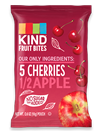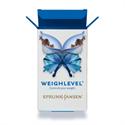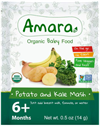Highlights
Commercial Compound Boosts Effects Of Caffeine Without Bad Consequences
 Love coffee but hate caffeine jitters? A new study finds that the compound theacrine, found in varieties of tea leaves and coffee, offers some relief. The study looked at the effects of ingesting a commercial, nature-identical version known as TeaCrine, finding that co-administering caffeine with TeaCrine increases its concentration in the blood (bioavailability). It seems to enhance mental clarity, focus, and energy without the caffeine crash. The study was partially funded by Compound Solutions, maker of TeaCrine.
Love coffee but hate caffeine jitters? A new study finds that the compound theacrine, found in varieties of tea leaves and coffee, offers some relief. The study looked at the effects of ingesting a commercial, nature-identical version known as TeaCrine, finding that co-administering caffeine with TeaCrine increases its concentration in the blood (bioavailability). It seems to enhance mental clarity, focus, and energy without the caffeine crash. The study was partially funded by Compound Solutions, maker of TeaCrine. Direct-To-Consumer Distribution Of Vitamins: The Future Is Now
 National Business Journal (NBJ) says vitamin supplement producers have embraced the trend toward direct-to-consumer distribution, now the largest sales channel for multivitamins. Use of vending machines and other novel modes of multivitamin delivery – could drone delivery be far off? – are gaining legitimacy. According to NBJ, new delivery technologies and formats could finally convince the federal government to allow multivitamins as a permitted purchase in the Supplemental Nutrition Assistance Program (SNAP). At any rate, NBJ expects vitamin sales to surpass $15 billion by 2021, led by multivitamins.
National Business Journal (NBJ) says vitamin supplement producers have embraced the trend toward direct-to-consumer distribution, now the largest sales channel for multivitamins. Use of vending machines and other novel modes of multivitamin delivery – could drone delivery be far off? – are gaining legitimacy. According to NBJ, new delivery technologies and formats could finally convince the federal government to allow multivitamins as a permitted purchase in the Supplemental Nutrition Assistance Program (SNAP). At any rate, NBJ expects vitamin sales to surpass $15 billion by 2021, led by multivitamins. FDA Allows Heart Health Claim For Soybean Oil
 The FDA has approved a soybean producer’s health claim that soybean oil consumption cuts the risk of heart disease. According to industry analyst Hartman Group, heart health leads the list of health concerns among American consumers. Bunge, the world’s largest producer of soybean oil, said its FDA filing included summaries of clinical studies showing the potential benefits of soybean oil to heart health. Those benefits are based on soybean oil’s positive effect on cholesterol levels and its high concentration of polyunsaturated omega-6 and omega-3 fatty acids versus other oils and fats. The FDA decision means companies can now claim that soybean oil as an ingredient replacing saturated fat may reduce heart disease risk and lower LDL-cholesterol.
The FDA has approved a soybean producer’s health claim that soybean oil consumption cuts the risk of heart disease. According to industry analyst Hartman Group, heart health leads the list of health concerns among American consumers. Bunge, the world’s largest producer of soybean oil, said its FDA filing included summaries of clinical studies showing the potential benefits of soybean oil to heart health. Those benefits are based on soybean oil’s positive effect on cholesterol levels and its high concentration of polyunsaturated omega-6 and omega-3 fatty acids versus other oils and fats. The FDA decision means companies can now claim that soybean oil as an ingredient replacing saturated fat may reduce heart disease risk and lower LDL-cholesterol. Hospital Patients With Diabetes Are More Prone To Complications, Longer Stays
 Twenty-two percent of German hospital patients are diabetic, and nearly one in four are prediabetic, according to investigators at two German research centers. For the study, researchers screened 3,733 adult patients in Tübingen University Hospital for diabetes and prediabetes for four weeks. They found that diabetic patients tend to stay in the hospital longer and have a higher risk of complications. They recommended that screening patients older than 50 years for diabetes and treating them for the condition would reduce complications and cut the length of hospital stays.
Twenty-two percent of German hospital patients are diabetic, and nearly one in four are prediabetic, according to investigators at two German research centers. For the study, researchers screened 3,733 adult patients in Tübingen University Hospital for diabetes and prediabetes for four weeks. They found that diabetic patients tend to stay in the hospital longer and have a higher risk of complications. They recommended that screening patients older than 50 years for diabetes and treating them for the condition would reduce complications and cut the length of hospital stays. Kind Expands Into Fruit Bite Market With Premium, All-Fruit Products
 Snack bar company Kind LLC is entering the $2.3 billion fruit snacks market with gummy fruit bites containing no added sugar. As established food companies have struggled to grow, Kind has managed to ride the healthful snacks wave using natural ingredients and transparent packaging to $1 billion in annual sales. Kind’s fruit bites are made with real fruit – apples, strawberries, pineapples and mangoes – and only fruit. No other ingredients are listed on the packages. The products will be available nationally in coming weeks at the premium price of $4.99 a box. General Mills is the category leader, controlling about 21 percent of the market.
Snack bar company Kind LLC is entering the $2.3 billion fruit snacks market with gummy fruit bites containing no added sugar. As established food companies have struggled to grow, Kind has managed to ride the healthful snacks wave using natural ingredients and transparent packaging to $1 billion in annual sales. Kind’s fruit bites are made with real fruit – apples, strawberries, pineapples and mangoes – and only fruit. No other ingredients are listed on the packages. The products will be available nationally in coming weeks at the premium price of $4.99 a box. General Mills is the category leader, controlling about 21 percent of the market. Studies Shed Light On Health Benefits Of Eating Red Raspberries
Eight studies, both preclinical research and human clinical trials, that described the potential of raspberries to boost satiety, control blood sugar, and moderate inflammation, were presented earlier this year at the Experimental Biology conference. Clinical trial participants experienced improvement in glucose control and increased satiety while eating raspberries. Animal subjects in longer-term preclinical studies showed promising effects on the gut microbiota after red raspberry intake. Observations from animal and in vitro studies suggested that future red raspberry research might explore potential good effects on inflammation, obesity, and type 2 diabetes risk.
Study Links Vegetarian Diet In Men To Depression Symptoms
U.S. and British researchers report that data collected from 9,668 adult male partners of pregnant women in a longitudinal study showed that vegetarian men are more likely to report “significant depressive symptoms.” Overall, the NIH-University of Bristol researchers found male vegetarians had higher depression scores than non-vegetarians after adjusting for an array of socioeconomic factors. Nutritional deficiencies (e.g., in cobalamin, iron, vitamin B12) could explain the findings. Other potential contributors include increased intake of omega-6 fatty acids, and higher blood levels of phytoestrogens from soy or vegetable-based foods.
Commercial Success Expected In U.S. For Reformulated Weight Loss Supplement
 A new dosage version of an herbal weight loss supplement is now on sale in the U.S. Weighlevel is a blend of extracts from the leaves of Lady’s Mantle, olives, mint, and cumin, plus a fiber developed by a Japanese company. Two clinical studies have been conducted in Denmark on the extended release formulation; the first will be submitted for publication this fall. The supplement, developed by a Danish company and researchers at the University of Copenhagen, is taken once daily instead of the three times recommended in an earlier fiber-less version. The once-a-day formulation could make the supplement commercially viable in North America.
A new dosage version of an herbal weight loss supplement is now on sale in the U.S. Weighlevel is a blend of extracts from the leaves of Lady’s Mantle, olives, mint, and cumin, plus a fiber developed by a Japanese company. Two clinical studies have been conducted in Denmark on the extended release formulation; the first will be submitted for publication this fall. The supplement, developed by a Danish company and researchers at the University of Copenhagen, is taken once daily instead of the three times recommended in an earlier fiber-less version. The once-a-day formulation could make the supplement commercially viable in North America. Baby Foods Company Hopes To Succeed With Freeze-Dried Products
 Amara Organic Foods is betting that parents will switch to their freeze-dried baby foods when they realize that freeze-drying preserves nutrients in fruits and vegetables just as well as high-pressure processing (HPP) but is a much cheaper process. The company’s products cost less, have a long shelf life, and contain no additives or preservatives. The company acknowledges that the HPP companies did the heavy lifting in getting parents to switch from baby foods in heat-treated jars and pouches. Amara’s products are available in natural food stores in California, Nevada, and Utah, and will roll out nationwide in 2018.
Amara Organic Foods is betting that parents will switch to their freeze-dried baby foods when they realize that freeze-drying preserves nutrients in fruits and vegetables just as well as high-pressure processing (HPP) but is a much cheaper process. The company’s products cost less, have a long shelf life, and contain no additives or preservatives. The company acknowledges that the HPP companies did the heavy lifting in getting parents to switch from baby foods in heat-treated jars and pouches. Amara’s products are available in natural food stores in California, Nevada, and Utah, and will roll out nationwide in 2018.
Copyright 2026 Business360, Inc.


